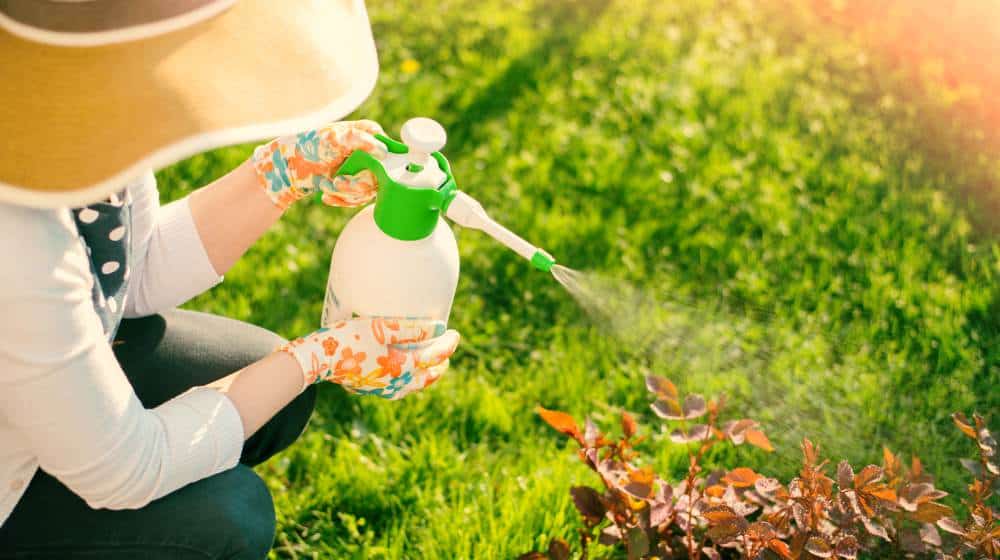
One fundamental aspect of having your own home garden or backyard
farm are harmful pests. Hence, in the process of eliminating these
pests, we normally resort to the use of pesticides. While most farmers
resort to using chemical pesticides as an easy means to getting rid of
these harmful pests, there is a better and most effective and convenient
way that is much safer for the environment – organic pesticides.
Organic
pesticides have really revolutionized crop production today. More and
more farmers are increasingly adopting them to maximize their crop
production. Even though Organic pesticides have their own advantages and
disadvantages, which each farmer must know.
Examples of Domestic Organic Pesticides
Pest control is very crucial in the garden. Some of the domestic organic pesticides include:
- Oil spray, which is effective in combating insects like aphids, spider mites, and thrips.
- Baby shampoo spray, which helps repel indoor and outdoor insects such as whiteflies, spider mites, among others.
- Garlic spray helps in dealing with stubborn insects like aphids from feeding on your vegetables in the garden.
- While red pepper is great for spicing up food, it can also be a very effective organic pesticide.
However, before you fully embark on spraying the organic pesticide on the farm or garden, it is important that you, first of all, take a small dose for testing. For maximum outcome, you should also spray the organic pesticide, early during morning hours or late in the afternoon hours. This is because some organic pesticides, which have their ingredients derived from the oil can burn your plants if sprayed when the sun is very hot.
Below are some of the benefits you will get when you use organic pesticides for your farming venture.
Environmental Conservation
Organic pest control for your farming activity will help conserve the environment. As opposed to chemicals, even though very effective, they may end up doing more harm than good to the environment. Very many organic products derive their ingredients from plants, therefore are normally very safe to use as they do not cause any harm.
Healthier Long Term Benefits
When farming in the garden, organic pesticides are a sure way of eating healthy. Additionally, they will leave your soil and plants looking very healthy, leading to increased food production.
Pest Resistance
Numerous studies have overwhelmingly shown that inorganic pesticides lose their power with time as they damage the soil and lead to increased pest resistance. However, this is the opposite of organic pesticides. The latter has the potential of enriching the soils, while at the same time increasing crop yield and conserving the environment as well. Due to their natural ingredients, pests cannot withstand their effectiveness or develop resistance against them.
Scientific Benefits
Many varieties of organic pesticides work through biological mechanisms like scent, natural oils, and tastes, among others. In conjunction with the natural green and safer attributes, they form a deadly combination of benefits against pests and diseases. It is up to manufacturers of these ingredients to come up with the right combinations, which can help repel pests in the garden or large scale farming ventures.
Some of the best and frequently used organic pesticides can be applied either as a spray, by dissolving it in water as powder form or direct application on crops. When it comes to this technique, natural substances like hormones can also be used to control pests. In such instances, it can be used effectively in the prevention of mating rates of certain pests, through the imitation of a predator’s presence and form.
Marketing and Sales
Organic pesticides and products, if marketed well can end up fetching good prices, as well as improving crop yield for farmers and animal products.
Some of the disadvantages of organic pesticides include.
- Failure to use the recommended amounts may lead to reduced yields in the garden or large scale farming.
- Using organic pesticide techniques require lots of research and perfection, which might be time-consuming and lots of resources, which at times may not bear fruits.
- It may lead to food illness in case it is not handled properly
- Organic pesticides are time-consuming and at times may not lead to the production of the desired effects.
- The cost of producing organic pesticides may also be prohibitive.
Organic pesticide versus chemical pesticide
Even though both types of pesticides are effective for controlling pests and diseases in the garden, one outweighs the other in terms of safety and use. Prolonged use of chemical pesticides is more lethal when compared to organic pesticides. Secondly, food that is grown organically is very safe for consumption as it does not have any chemical residues, which can harm us. Apart from being harmful to our health, chemical pesticides can also have adverse effects on the environment or soil. This is the exact opposite of organic pesticides, which improve the environment and soil.
Effects of Organic Pesticides on Produce
Organic pesticides usually have lower residual levels on the produce, therefore, rendering them safe for consumption. However, utmost care should be taken not to apply too many organic pesticides. This is because some chemicals like copper sulfate, rotenone, and pyrethrins, can pose a greater health risk when used in large quantities.
